“I normally don’t have specific stories when I get asked for stories about specific songs, but there’s actually one memory that made me want to give it that title.”
South Philly’s Boot and Saddle, a country dive bar-turned-treasured rock club with a distinctive neon cowboy boot on the outside, joined a tragically long list of independent music venues shuttered by the ongoing COVID-19 pandemic. Its most recent iteration was referred to by the Philadelphia Inquirer as “an important intimate stage for local and touring acts” in a part of the city that generally hadn’t seen as much action as the others. The news broke on November 10th of last year, after seven months of silence and seven years of operation in its revived form – more than enough to make it a staple of the city’s music community.
Slaughter Beach, Dog’s Jake Ewald spent plenty of time there, working the door for shows and “fumbling through” the early works and lineups of Slaughter Beach, Dog. The news of the closing, which came a month and half before new record AT THE MOONBASE’s surprise Christmas Eve release, prompted him to reinstate the lengthy and “obnoxious” (his words, not mine) original title of cathartic album closer “Notes From A Brief Engagement (At the Boot and Saddle)” as an homage. An ear well-versed in the locales of the city of Philadelphia might be able to lock down some of the other places that make appearances on the record – “Song for Oscar’s” is set in the Center City dive bar of the same name, for example.
“Every year, Lame-O Records would do this series of shows there in January where once a week, a bunch of Lame-O and Lame-O adjacent bands would play. And I think it was like the second or third year that it happened. I played by myself, just acoustic. Boot and Saddle’s not in my neighborhood, but it’s enough in the city that I could, like, get my guitar and ride there on the subway.”
The songs on AT THE MOONBASE were written in the time before the pandemic, and the process of recording them by himself after months of isolation shifted Ewald’s perspective on the songs that he’d written. Characters from previous songs on previous Slaughter Beach, Dog records weave in and out as the song’s narrator takes in the world and listens to the people around them, and the contrast between the lyrics, in which Ewald’s narrator is often a fly on the wall of a busy bar, or having a heart to heart with a loved one, and the intimate energy of his musical arrangements is striking. “I was realizing, as I was pouring myself into those songs, that they are really about places that I love and have spent a lot of time in, and people that I love and spent a long time with. I think my writing is definitely informed by tangible things,” he says. “As I was writing these songs, I just dove all the way into that. And then, by the time they were recorded, it was like looking back into a parallel universe where I can go to any of those places.”
“I got there kind of early and my friend Russell, who I didn’t see very often, had also gotten there early. I think we went to get a beer, and then came back to the show. And I don’t know, I think that my I want to say that my close friends were not there at the beginning. And my partner was not there at the beginning, I think she came later. But anyway, none of that really matters. The show is really nice. It is nice to see everyone. And I was alone for a lot of it, but in a nice way, like I was just observing a lot more than usual. A lot of times at a place like that, you know, when you have your own version of that place, it’s the kind of place where you show up, and you kind of immediately start a rotating conversation that lasts for four hours, and then you go home. But this time in particular, I was alone for a lot of it.”
AT THE MOONBASE is the latest fruit of Ewald’s journey in experimenting with how he writes and works. His previous songwriting as frontman of beloved emo revival band Modern Baseball was urgent, personal, and equal parts witty and anxious, and the beginnings of Slaughter Beach, Dog were in his desire to try a different path to making something work. “The first record that I wrote for Slaughter Beach, Dog was like a homework exercise where I told myself I was gonna write a whole album that was completely impersonal to me, specifically.” He says he hasn’t completely stuck with this approach through his subsequent work with the band, but the experience led him to the ability to write deliberately, rather than “standing around and waiting” for a rush of something to appear to him. “When I could only write these super personal songs, it was a situation where I could either write, or I could not write at all. I could wake up and think I have this perfect idea for a song and obsess over that for a day or two. But also, there were probably 250 days out of the year where that didn’t happen.”
“I was getting ready to play and I got on the stage. And Eric, one of my best friends, one of the people who runs Lame-O, came up to me and he was like, ‘Hey, you won’t believe it but the show’s sold out.’ And I just got really happy, obviously. And then I just played the set by myself at this place where I’ve played, you know, probably like six or seven times before at that point. But it was one of those rare treats where you’re playing a solo acoustic show by yourself, and you can just hear everyone listening. I remember I played a lot of new songs and everyone just listened to the new songs. And the way that it was unfolding in front of me, it was kind of like the way it would happen on a corny TV show, because it was just so perfect.”
The observational character of this record runs strongly through it, but based at least on the online reactions, one track, “A Modern Lay,” has clearly stood out to listeners. The song is a perfect thematic fit for a record about people and places, but when in most cases Ewald’s narration is a bit more grounded and focused on examining singular moments in a subdued way, “A Modern Lay” sees him literally take the stage, speaking over canned audience chatter like a kitschy barroom singer and telling stories of romances between people unfolding in unlikely scenarios. Amidst songs that are intimate, direct, and focused on small moments, “A Modern Lay” is a fascinatingly jarring interlude; tipsy, sloppily sexual, and, maybe, a dark material examination of the love lives of people under late capitalism under a sunny Billy Joel-esque cover. If you were to imagine this album as a movie, and Jake Ewald as the protagonist of that movie, this might be his version of watching Rebekah Del Rio sing Roy Orbison at Club Silencio. Or maybe he IS Rebekah Del Rio in this case. It’s hard to say.
“I finished the set and then I went downstairs to this tiny green room that always has, like, four random people in it. I went down just to put my guitar down, and by some magic there was no one in there. I just felt so full of something. I sat down on the couch, and I looked at the wall and I was totally alone in this place where I also knew that I was surrounded by so many people that I loved, but I just took a moment of reflection.”
It was a watershed moment for Ewald creatively, as well. “A Modern Lay,” like some of the other songs on AT THE MOONBASE was the result of Ewald, once again, trying to push himself to try different approaches as a writer with a morning pages-type exercise. “When I went back to read it, I was really proud of it. Normally when I finish something. I’m into it for a couple days, and then like a week later I’m kind of over it but I finish the process for the sake of finishing it. But every time I went back to it to work on it, I was still proud of it in a way that stuck with me.” The process of making “A Modern Lay” ended up being unlike anything Ewald says he’s written before, and the pride he took in the lyrics he wrote drove him to push himself as he worked on the song’s musical arrangement, which builds on the sound of the rest of AT THE MOONBASE by adding dreamy organs and vocal harmonies. “I kept thinking ‘you really have to do this justice, you should actually try some stuff here that you have not tried before.’” he says. Rather than focusing on a moment in time, or a specific emotional center, he sought to build the world outward musically. He’s audibly excited to talk about the response to the song from fans, critics, and others. “It was such an interesting mix of ‘I really like this song’ and ‘I have no idea what the song means!’ It spoke to some other people the same way that it spoke to me, in kind of these mysterious, weird, sexual ways. I just loved it, and it makes me happy that other people like it too, and they don’t think I’m just, like, a stupid freak.”
“I stared at the wall for, like, six minutes until somebody walked in, and I went back into whatever I was doing. But for those like six minutes downstairs, I remember specifically vividly thinking, this is as good as it will ever be. It’s never going to be any better than this moment right here in this place. And it wasn’t in like, a bad way, I was just so grateful that I was actually experiencing it. And I had those, like, six minutes or whatever it was to notice it.”
The pursuit of new ways to write, for Ewald, was rooted in a need to make his work as a songwriter sustainable in the long term, and exploring new territory in both his process and the subjects he writes about are the consequences of that search. “I’ve spent a really long time, particularly with my therapist, accepting the fact that this is now my job and it’s the thing that I do for a living. I’m trying to figure out how to make it sustainable on a personal level. How can I write and make records in a way that feels fulfilling, and is not draining?” With each Slaughter Beach, Dog record, Ewald has tried to expand the methods and topics he writes about in search of that sustainability, and creating new characters within his world as a writer gives him more options. “Some days you wake up and feel closed off, and you don’t want to think about the time that you got left behind at the grocery store. But you still just want to write something because you love writing. And those are the days where I’ll sit down and start writing about Tommy and Fernando (from “A Modern Lay”).”
The experience he had creating “A Modern Lay” helped him realize what he was capable of in composing and arranging his music, in the same way that earlier records helped him find fulfillment in his lyrics. “It felt really special when I had that same moment again, but with music – that I can try something totally different. It was like a feeling of stumbling onto something, and I hadn’t worked that way in a really long time.”
“And that’s after years of going on tour, and playing hundreds of shows that are like some really good some really bad. But to have that happen after all of those shows, to be able to just like sit in a room alone. Look at the wall and think like, this is perfect. This is the perfect one. That’s one of my favorite memories of playing music.”
I wanted to ask him where we would be if we met in person, originally so I could do a riff on the music journalism cliche where the writer sets the table by describing the scene of whatever restaurant or coffee shop they’re meeting in. Originally, I wrote this question down because I thought of it about an hour before we were scheduled to speak on the phone, and I thought it was cheeky and kind of funny, but by the time we had concluded our conversation, it took on a very different context for me. So I asked him: “where would we be, and what would you be eating or drinking if we were meeting each other in person right now?”
“Should I choose the place where we would be based on Slaughter Beach, Dog history? Or should I choose the place where I most long to be that I haven’t been yet with an interviewer?,” he asked. I said let’s hear them both. He paused for a few seconds.
“Okay. In the interest of historical accuracy, we might…” Another pause. “We might be at Oscar’s, honestly! Yeah, we might be at Oscar’s in Philadelphia, and I would have a Heaven Hill on the rocks.”
“If this were the interview that I long to have, we would be at the 2424 Diner in Fishtown. It would be just after the lunch rush, and we’d be in a booth. I would have two eggs scrambled with cheese, peppers and onions, hash browns, and a peppermint tea.”
The thing that makes AT THE MOONBASE special is that it has its feet firmly in both worlds. Few things make examination of pre-pandemic life more striking than the way things used to be than a tangible contrast of the past and present; photos of hanging out with friends and videos of packed bars and clubs inspire quick-reflex twinges of discomfort and a slow, weary sadness. Revisiting thoughts from those times feels even stranger, and Ewald felt the changes in what these songs meant to him as he worked. “I didn’t intend it to be morose. But it hit me partway through the process that this album was my formal goodbye to those places for a little while.”
AT THE MOONBASE is the product of a writer who does an extraordinary job of communicating moments in time being forced to step away from them and faced with the choice of trying to recreate them as they were, or dive into another level of consciousness to understand them. It portrays a past that feels ghostly now, but also reminds that if the present is something you need to escape from, you’ve got plenty of options; whether it be remembering that past, looking forward to a bourbon at Oscar’s, or checking in on your friends Tommy and Fernando.




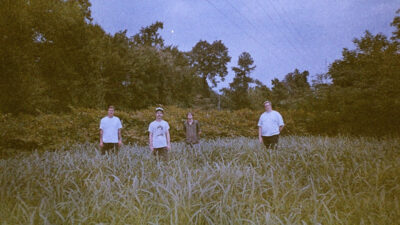
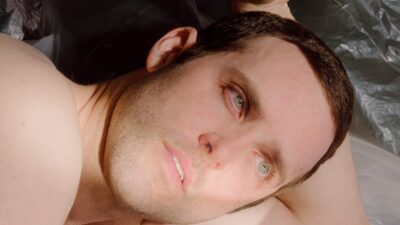


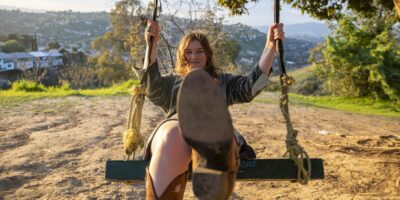

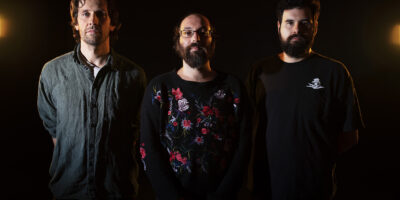

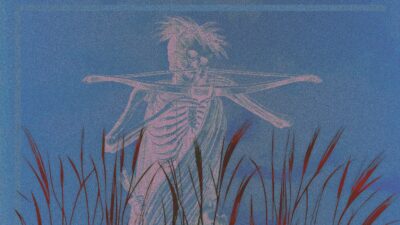
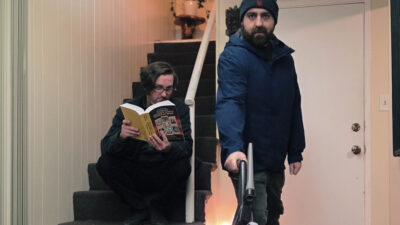
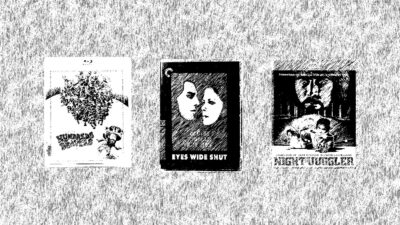

Lovely article, amazing band. I absolutely love Jake and his attitude and heart!